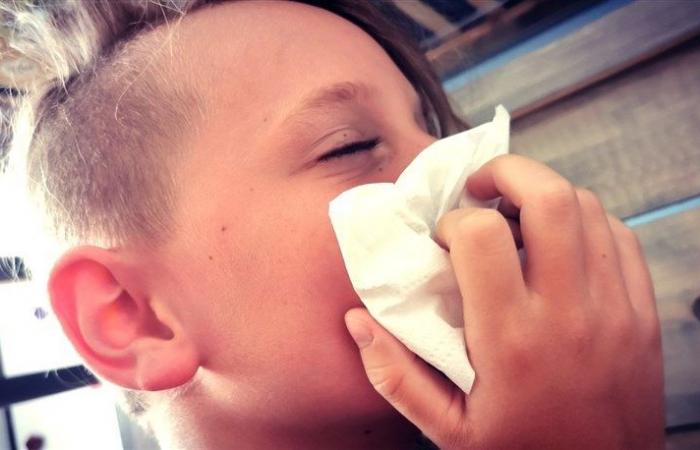Cases of whooping cough are on the rise in Montérégie. The Montérégie Public Health Department (DSPM) also sent a letter to parents of children attending one or other of the Vaudreuil-Soulanges schools.
Since the start of the year, more than 1,100 cases of whooping cough have been reported in Quebec. Of this number, 32 probable and confirmed cases of whooping cough were recorded from January 1 to June 10, 2024 in Vaudreuil-Soulanges and Suroît.
It should also be noted that whooping cough is one of the diseases, infections and poisonings that must be declared.
In the letter sent to parents, the DSPM indicates that the transmission of this highly contagious disease could continue over the coming months.
Information you need to know about whooping cough
It is a respiratory infection caused by bacteria that is transmitted in droplets released into the air by an infected person, for example, when they cough or sneeze. It is easily transmitted between members of the same family or between children who attend the same daycare or the same school.
It develops in several phases and lasts approximately six to ten weeks. In the first few days, it feels like a cold with a runny nose, mild cough, low-grade fever, and watery eyes.
Then the characteristic symptoms set in:
– coughing fits (persistent and uncontrollable coughing fits) OR;
– a cough with cockcrow (loud whistling at the end of a coughing fit) OR;
– a cough ending with vomiting, gagging, or difficulty catching your breath.
In a person adequately vaccinated against whooping cough, symptoms may be milder or atypical (e.g. no rooster crowing).
The following people are considered vulnerable to the disease because they have a higher risk of serious complications such as pneumonia, breathing difficulties and even death:
o unborn children of pregnant women at the end of pregnancy;
o babies born prematurely;
o children under 12 months who have not received the first three doses of the vaccine.
Whooping cough can be treated with an antibiotic which could reduce the duration of contagiousness.
How to protect yourself
A person who has a fever should stay home;
A person who has a cough, sore throat or blocked nose should wear a mask and avoid contact with people vulnerable to whooping cough;
A person who has symptoms of whooping cough should consult a health professional or call Info-Santé 811;
A person who has been diagnosed with whooping cough will receive instructions:
o On withdrawal from school or wearing a mask, if applicable;
o Avoid contact with people vulnerable to whooping cough;
• Maintain good hand washing habits and cough or sneeze into your elbow;
Up to date vaccinations
Vaccination is the best way to protect against whooping cough. Even if after some time the effectiveness of the vaccine decreases, the disease remains less serious:
The DSPM invites the population to check the vaccine doses received and to receive missing doses, if necessary;
To protect the unborn baby, one dose of the whooping cough vaccine is recommended
to any pregnant woman each pregnancy (regardless of vaccines already received).






